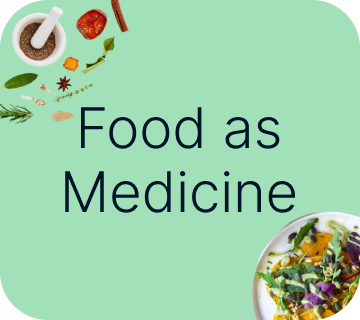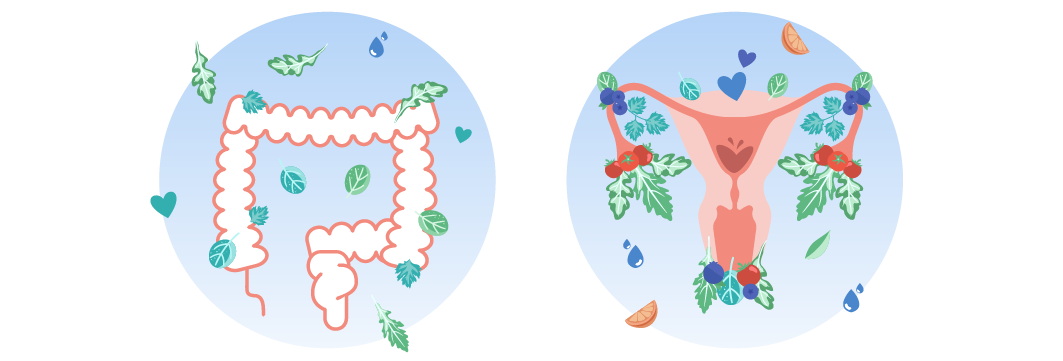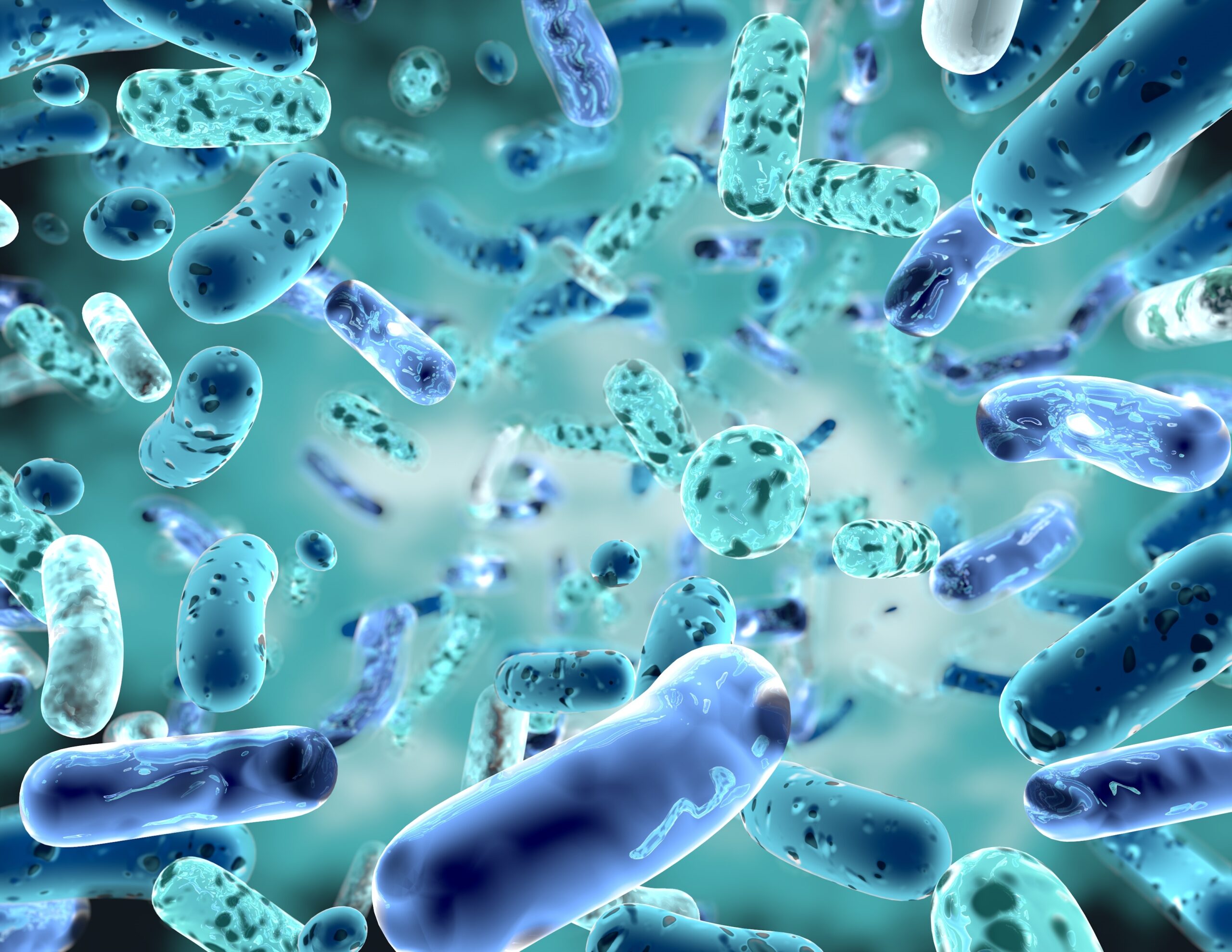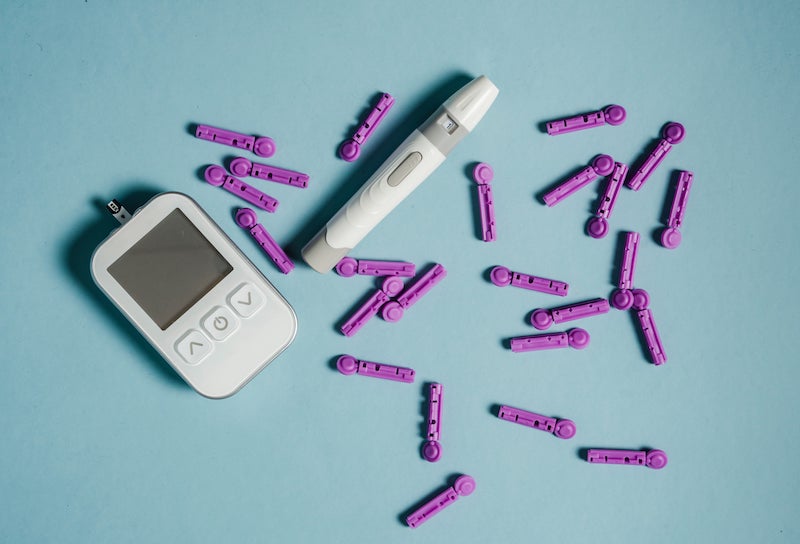Do you find yourself waking up at night to the sound of your teeth chattering? Or when you walk into that big meeting with the boss, do you feel a sudden, uncomfortable chill? Cold flashes are a common but lesser-known physical symptom related to anxiety, hormonal changes, or lifestyle factors. We’ve seen our community members warm up their cold flashes using the Betr Method, and we’ve learned a thing or two in the process! In this article, we’ll cover:
- What are cold flashes?
- Cold flash causes: why am I getting them?
- Cold flashes symptoms: chills, numbness, & more
- How to get rid of cold flashes: 4 simple solutions
Read on for our hot take on cold flashes!
What are cold flashes?
Cold flashes are sudden drops in body temperature that can cause uncomfortable shivering and chills. Like hot flashes, they are often caused by hormonal fluctuations during menopause. These changes interfere with the body’s ability to stabilize its temperature, which is what causes the cold flashes.
Cold flashes are also associated with emotional triggers such as anxiety or panic disorders. When the body experiences significant anxiety or panic, it releases hormones. These hormones are different from the hormones associated with menopause, but they have the same effect—they short circuit our body’s thermostat.
Cold flash causes: why am I getting them?
The hypothalamus is our brain’s thermostat. When the hypothalamus senses that our body temperature is too hot or too cold, it tells other parts of the body to make adjustments. When you get hit with a cold breeze, your hypothalamus will send your muscles a message to give a little “shiver” to increase your body temperature.
It’s not just cool breezes and bright sunshine that our hypothalamus responds to, though. Other important messengers to the hypothalamus are our hormones. When our hormone levels change due to life events — like pregnancy or menopause — or more immediate triggers, like anxiety or panic, they can send confusing signals to the hypothalamus. These mixed hormonal messages cause hot or cold flashes.
These triggers can be caused by any number of lifestyle, bodily, or environmental factors.
Cold flashes & anxiety
There are several ways that panic and anxiety can contribute to cold flashes; some are easier understood than others. One of the more common causes of cold flashes with stress is sweat.
But isn’t sweating an effect of being hot? Yes, but remember the purpose of sweat. When we overheat, our body releases sweat. Sweat evaporates and provides a cooling sensation to our skin. This effect may result in shivering or chills, especially if the sweating results from anxiety rather than the environment’s temperature.
Cold flashes might be your body’s reaction to the hormones released during moments of panic or anxiety. In response to danger, the body releases the hormone adrenaline, which causes chills or shivers in some people.
Another effect of stress hormones is that they alter our circulation. When we are in the “fight or flight” panic mode, blood flow shifts away from our extremities to our major organs. This change in circulation can cause our hands and feet to feel cold and tingly and trigger a cold flash.
Cold flashes & pregnancy
Pregnancy causes significant physical changes in a woman’s body that often result in difficulty maintaining a comfortable temperature. Hormonal changes, increased body weight, and changes to circulation and cardiovascular responses are all reasons that pregnant women often report hot flashes.
Though they’re less common, cold flashes can also occur during pregnancy for all of the same reasons as hot flashes. The hypothalamus often overshoots in its attempt to maintain an average body temperature, resulting in chills and shivering.
A 2001 study found that approximately one-third of women experienced “postpartum chills.” “Postpartum chills” are different from cold flashes. They are characterized by sudden, intense chills and shivering in the minutes or hours following labor and delivery. They are a response to the efforts of giving birth and blood transfer between the mother and infant.
If you are pregnant and experiencing cold flashes along with significant fatigue, loss of appetite, or other unusual symptoms, you should talk to your doctor, as these symptoms could be signs of an underlying illness such as an infection or thyroid issue.
Cold flashes & menopause / perimenopause
Menopause and perimenopause are probably the most common hot and cold flash triggers. In fact, hot flashes are the most reported symptom of perimenopause and menopause.
Perimenopause and menopause are the name for the gradual change, decrease, and eventual ceasing of a woman’s period. The hormones estrogen and progesterone regulate the menstrual cycle. These hormones gradually decrease as women enter menopause.
It’s not entirely understood why it happens, but the changes in these hormone levels make the hypothalamus more sensitive to temperature changes, making it less effective at maintaining a comfortable, consistent body temperature.
While “hot flashes” often get the top billing, cold flashes are also a prominent symptom of menopause. Sometimes cold flashes occur immediately following a hot flash. Usually, this results from your body overcompensating to the sudden increase in body temperature.
It’s also common for women to experience cold flashes at night. The body’s circadian rhythm generally causes a decrease in body temperature when we sleep, which can be exaggerated by hormonal effects on our hypothalamus.
Cold flashes & your period
Suppose you are approaching your late 40’s or early 50’s. In that case, you may be entering perimenopause, but the same hormones that cause cold flashes in menopause can contribute to the same symptoms during your menstrual cycle. If you are experiencing cold flashes during your regular period — don’t panic!
It’s likely that period-related cold flashes are related to lifestyle factors rather than permanent hormonal changes. Stress, diet, weight, smoking, and alcohol consumption can all contribute to cold flashes and hormonal changes during your menstrual cycle. That’s good news because lifestyle is something that we can control!
Cold flashes in men
With all this talk of menopause and female hormones, you might think that cold flashes are limited to women. Men can also experience cold flashes, and for similar reasons!
In women, hormone fluctuations are a natural part of menopause. For men, fluctuation in the primary sex hormone, testosterone, can occur due to a medical issue or as a side effect of disease treatment. Significant decreases in testosterone have the same effect on the body as decreases in estrogen and short circuits the hypothalamus’ ability to keep your body temperature stable.
Men may also experience cold flashes as a result of anxiety. Stress hormones are the same in men and women and can cause similar symptoms.
Cold flashes symptoms: chills, numbness, & more
The symptoms of a cold flash fall into two categories. The first category is the sensation or perception of lowered temperature (feeling cold or chilled). The second category is the body’s physical response to that perception (tingling or shivering).
While none of these symptoms are life-threatening, they are bothersome, especially if they continue for longer than a few minutes. These are the main symptoms of cold flashes that occur in most people:
- Cold Sensation & Chills: A feeling of uncomfortable, lowered body temperature. Chills often happen following a hot flash or at night to respond to natural body temperature fluctuations.
- Shivering: Involuntary, muscular response to lowered body temperature. Muscles flex and relax rapidly to stimulate blood flow and warm your body.
- Tingling or Numbness: Commonly known as “pins and needles,” a tingling sensation is most noticeable in the hands and feet. Tingling results from changes in circulation as your blood flow shifts in response to the cold sensation.
- Racing heart, shortness of breath, feeling of dread: These symptoms are not always associated with cold flashes. If you experience these symptoms with cold flashes, it’s probably a sign of a panic attack or an anxiety disorder.
How to get rid of cold flashes: 4 simple solutions
The good news about how to stop cold flashes is there are many approaches to decreasing their frequency and impact. Dietary changes, lifestyle modification, and stress management can all affect how often you experience cold flashes.
Solution 1: Adjusting your diet with the Betr Health Method
Nutrition can have a significant impact on every aspect of our health. There are specific foods that can have a direct impact on the frequency and severity of your cold flashes. Because cold flashes are most often related to hormone imbalances, discovering the foods that your body needs to reach a natural balance can go a long way towards helping reduce cold flashes.
Betr Health has designed a method based on the body’s ability to heal itself and achieve balance. The Betr Health method maximizes your body’s ability to function at its highest level. The purification and reintroduction phases of the program can be especially helpful in fighting cold flashes.
During the purification phase, you will adjust your nutritional intake to specific foods designed to “reset” your body. Although Level 1 may seem stringent at first, many members experience relief from ongoing symptoms like reduced energy, chronic inflammation, and hot or cold flashes. We’ve designed Level 1 to restore your body’s natural ability to maintain balance and fight disease and inflammation.
During Level 2, the “reintroduction” phase, you will begin to add healthy foods back into your diet. Reintroduction is often where our members discover real, workable solutions to their unique health challenges. As you add certain foods back into your diet, you may find a typical food increases the frequency or severity of specific symptoms, such as cold flashes. Armed with this information, you can avoid trigger foods that contribute to unwanted cold flashes.
Solution 2: Stress management
As we’ve already discussed, cold flashes can often be related to anxiety and stress. Finding approaches to managing stress and anxiety may help to reduce cold flashes. Reducing ongoing stress and anxiety can also help to reduce levels of the stress hormones that interfere with the hypothalamus’ ability to regulate your body temperature.
Everyone’s approach to stress management is different, but here are a few techniques that many people find helpful:
- Exercise: Regular exercise keeps you physically healthy and stimulates the release of chemicals called endorphins. Endorphins decrease pain and inflammation, promote healthy, restful sleep, and improve mood. Exercising during a cold flash can also help to increase your body temperature and resolve the cold flashes.
- Sleep: Good, restful sleep is one of the most important things you can do for your health. Making sure to set up your sleep environment for high-quality rest can significantly impact mood and stress levels. For more information on how sleep can improve your overall health, check out the following interview with Betr Health’s founder, Dr. Ferro.
- Self-care: Self-care is different for everyone. Enjoying a hobby, spending time with friends, or reading a book all constitute good self-care. While it often seems like there aren’t enough hours in the day, setting aside time for yourself can improve your mood and decrease stress and anxiety.
- Yoga, meditation, or spiritual practice: Yoga and meditation are known for their healthy, stress-reducing properties. Both activities help foster a solid body-mind connection that helps avoid the physical manifestation of mental stress. Many people find spiritual practices, such as attending church services, doing charitable works, and studying spiritual or religious literature, fulfilling. This sense of meaning and fulfillment can positively impact mood and stress levels.
The great news about managing stress is that small changes often have an additive effect. Exercise can improve sleep, and both work together to reduce anxiety. When combining these lifestyle changes with our Betr Health program, many members report significant improvements in sleep, energy levels, and a decrease in stress!
Solution 3: Lifestyle changes
Many possible lifestyle choices might increase or decrease the occurrence of cold flashes. Alcohol, caffeine and nicotine consumption can all interfere with the hypothalamus’ ability to regulate your body temperature. These substances can also interfere with sleep, contributing to stress, anxiety, and hormone fluctuations.
One easy lifestyle modification is clothing choice. Wearing layers to add or remove clothing can help avoid swings in body temperature that might result in a cold flash.
Solution 4: Medical treatment
If you’ve tried everything else and your cold flashes are becoming increasingly severe, frequent, or are accompanied by other concerning symptoms, it might be time to discuss them with your doctor. Often, diet, exercise, and other lifestyle modifications can improve cold flashes, and your doctor will likely make these same suggestions. However, it’s crucial to know when it’s time to seek professional help.
Let’s review what we’ve learned about cold flashes:
- Cold flashes are sudden, uncomfortable sensations of cold and chills, often accompanied by shivering and tingling.
- A cold flash is most often related to hormonal changes that interfere with our body’s ability to maintain its temperature
- Cold flashes can also accompany anxiety and panic disorder
- You can manage cold flashes through diet, exercise, stress management, lifestyle modification, and, in more extreme cases, exploring medical treatment..
After reading this article, you may be asking yourself if your own health hurdles could be related to an unhealthy gut.
Explore Betr's risk-free trial to see if you could benefit from using food as medicine to rebuild your microbiome and realize the healthy potential you never knew you were missing!











